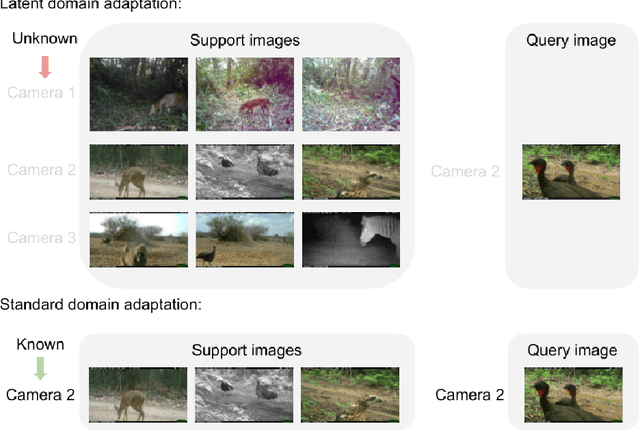Feed-Forward Source-Free Latent Domain Adaptation via Cross-Attention
Paper and Code
Jul 15, 2022



We study the highly practical but comparatively under-studied problem of latent-domain adaptation, where a source model should be adapted to a target dataset that contains a mixture of unlabelled domain-relevant and domain-irrelevant examples. Furthermore, motivated by the requirements for data privacy and the need for embedded and resource-constrained devices of all kinds to adapt to local data distributions, we focus on the setting of feed-forward source-free domain adaptation, where adaptation should not require access to the source dataset, and also be back propagation-free. Our solution is to meta-learn a network capable of embedding the mixed-relevance target dataset and dynamically adapting inference for target examples using cross-attention. The resulting framework leads to consistent improvement on strong ERM baselines. We also show that our framework sometimes even improves on the upper bound of domain-supervised adaptation, where only domain-relevant instances are provided for adaptation. This suggests that human annotated domain labels may not always be optimal, and raises the possibility of doing better through automated instance selection.
 Add to Chrome
Add to Chrome Add to Firefox
Add to Firefox Add to Edge
Add to Edge